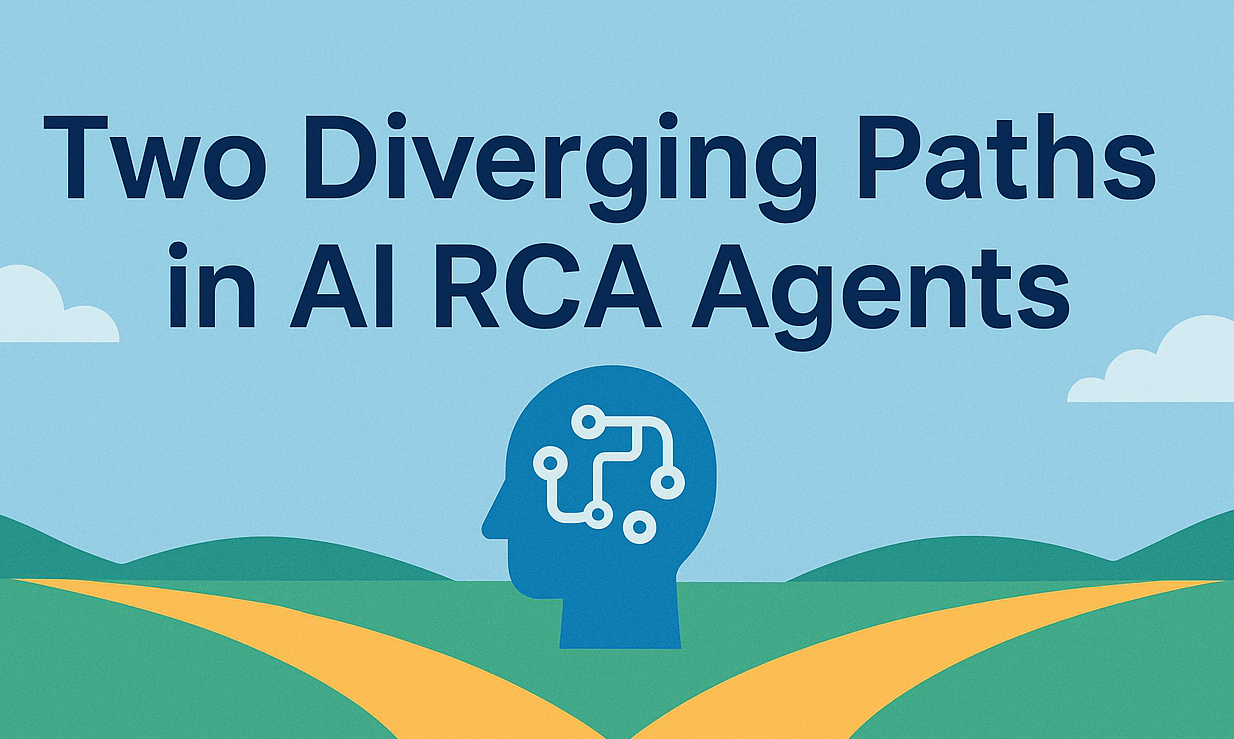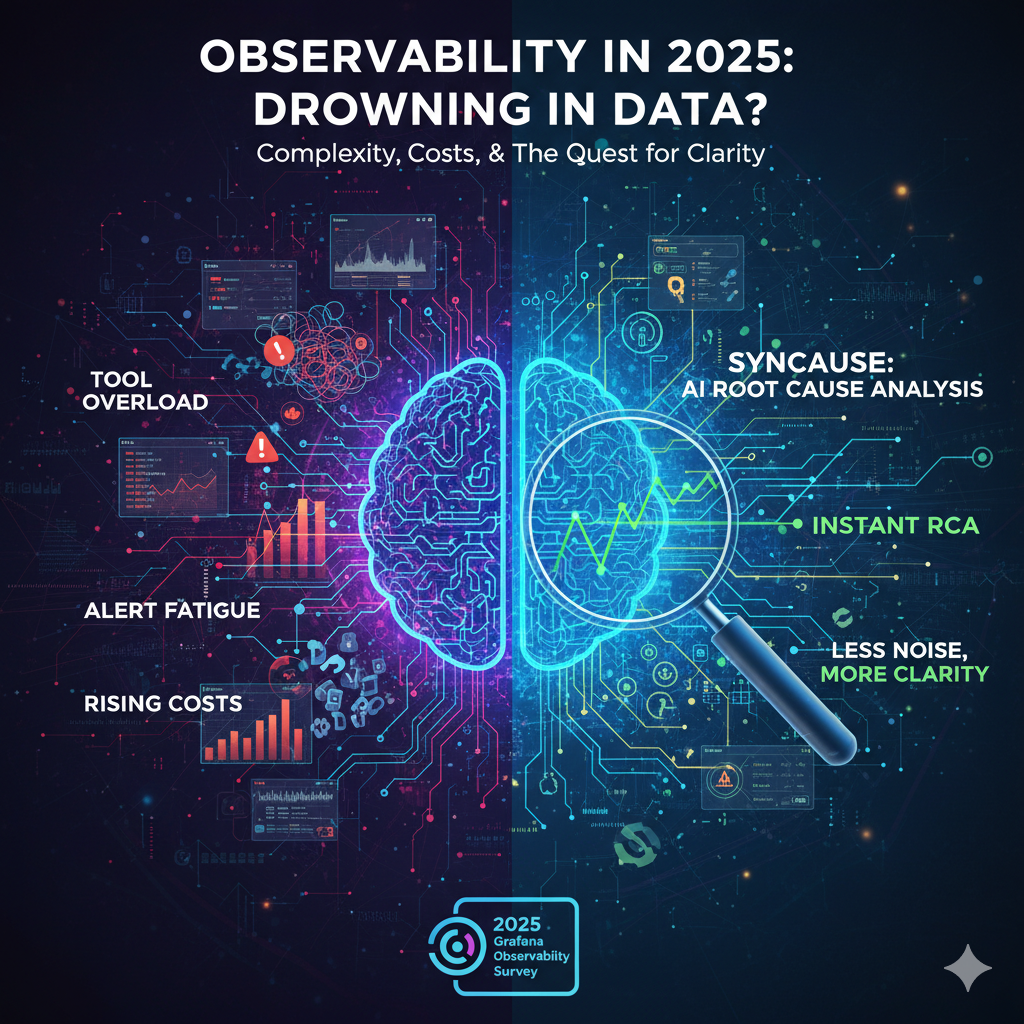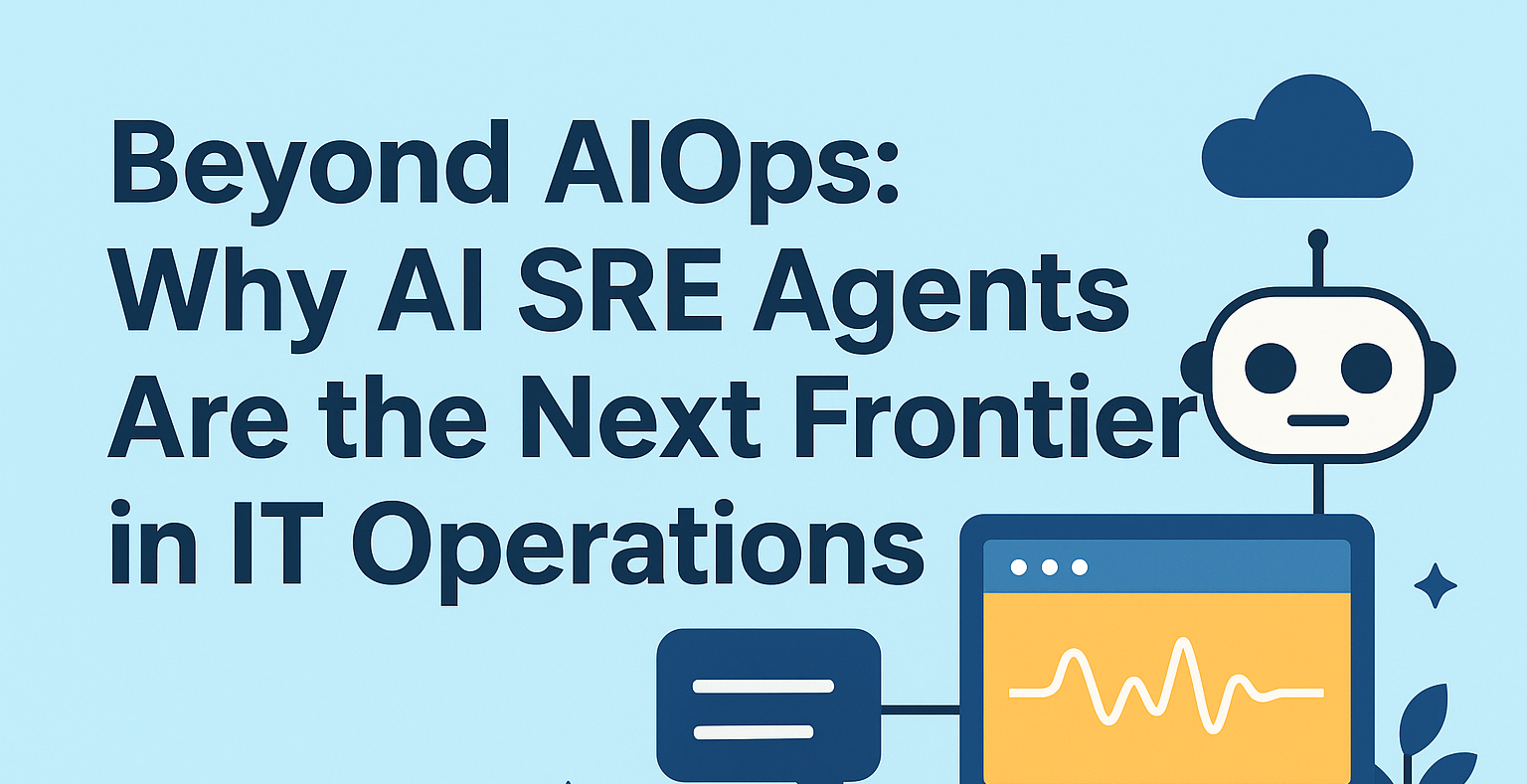Beyond AIOps: Why AI SRE Agents Are the Next Frontier in IT Operations
AIOps promised to bring intelligence to operations, turning reactive firefighting into proactive optimization. But after years of experimentation, many teams quietly admit that AIOps never quite lived up to its promise. The idea was right—but the execution fell short.
Modern IT operations have never been more complex. Microservices, cloud-native architectures, and distributed teams have pushed systems to a level of scale and interdependence that even the most experienced SREs struggle to manage. In this landscape, the idea of letting machines help us run machines has always been irresistible.
That’s how AIOps began. It promised to bring intelligence to operations, turning reactive firefighting into proactive optimization. But after years of experimentation, many teams quietly admit that AIOps never quite lived up to its promise. The idea was right—but the execution fell short.
Today, a new class of systems is emerging to fill that gap: AI SRE Agents.
AIOps: Promises and Limits
AIOps was built on a simple idea: feed logs, metrics, and traces into machine learning algorithms, and let them surface patterns humans might miss. It was supposed to detect anomalies, predict failures, and connect the dots across the operational noise.
In theory, this would free engineers from endless alert fatigue and shorten Mean Time to Resolution (MTTR). In practice, however, the story is more complicated.
AIOps platforms turned out to be heavy, expensive, and data-hungry. They required large teams to maintain data pipelines, tune models, and integrate with fragmented monitoring tools. For many organizations, the cost of “getting to insight” outweighed the benefit. The output was often another dashboard, another correlation, another “insight” that still needed a human to interpret.
AIOps was a step forward, but not far enough. It could see patterns—but it couldn’t understand them.
From Analysis to Understanding: The Rise of AI SRE Agents
If AIOps is about perception, AI SRE Agents are about reasoning.
An AI SRE Agent doesn’t just detect anomalies. It builds a model of your system’s behavior and reasons about cause and effect the way a human SRE does. It reads documentation, examines code and metrics, recalls historical incidents, and draws connections that span multiple data sources.
The goal is not only to observe the system, but to understand it.
Where AIOps reacts to statistical deviations, an AI SRE Agent reasons from context. When latency spikes, it doesn’t just note the correlation with CPU usage—it understands that a recent deployment altered thread concurrency, or that a dependency service is under load. It connects these dots using a mix of symbolic reasoning, language understanding, and learned operational knowledge.
In essence, AI SRE Agents think before they act.
Why This Shift Matters
For engineering leaders, the difference is not academic—it’s strategic.
-
From pattern recognition to causal reasoning.
AIOps tells you that something unusual happened. AI SRE Agents tell you why it happened, and how to fix it. -
From automation to autonomy.
AIOps scripts automate repetitive actions. AI SRE Agents make judgment calls within context—choosing the right tool, action, or escalation path. -
From dashboards to dialogue.
Instead of searching through logs or crafting queries, engineers can now ask questions in plain English: “Why did this service’s latency spike after the last release?” The agent answers with evidence and reasoning, not guesswork. -
From data silos to system awareness.
By integrating documentation, incident reports, and code repositories alongside observability data, AI SRE Agents form a living map of how your systems behave and evolve.
This shift mirrors how human expertise operates. Great SREs don’t rely on single metrics—they rely on context, memory, and causal reasoning. AI SRE Agents aim to replicate that cognitive process at machine scale.
The Reality of AI SRE Agents Today
Of course, the phrase “AI SRE Agent” is already attracting its own share of hype. We’re still far from fully autonomous systems that can modify production environments without human oversight. But the direction is clear.
The most practical AI SRE Agents today already provide tangible value in three ways:
-
Conversational querying: enabling engineers to explore metrics, traces, and logs in natural language.
-
Incident reasoning: correlating data across the stack to propose plausible root causes.
-
Post-incident summarization: generating draft postmortems and insights for continuous learning.
These capabilities don’t replace SREs—they amplify them. They let teams move faster, think clearer, and spend more time on strategic reliability work instead of routine triage.
Experience the Next Generation with Syncause
At Syncause, we believe AI SRE Agents are not a marketing label, but a new operational paradigm. Our work focuses on giving AI the context it needs to reason like an engineer so that it can partner with humans.
If you’ve ever wished your systems could explain themselves, it’s time to see what an AI SRE Agent can do.
Experience it in the Syncause Experimental Environment.
Related Articles

Two Diverging Paths in AI RCA Agents and Where Syncause Fits
In the world of AI-driven software engineering, product differentiation often emerges from the problems being solved rather than the technologies being used. This divergence is evident in both the AI coding and SRE domains.

The State of Observability in 2025: Why Complexity Is Holding Teams Back
Observability was meant to empower engineering teams with clarity and speed. Yet in 2025, many organizations find themselves drowning in tools, overwhelmed by noise, and facing rising costs.
